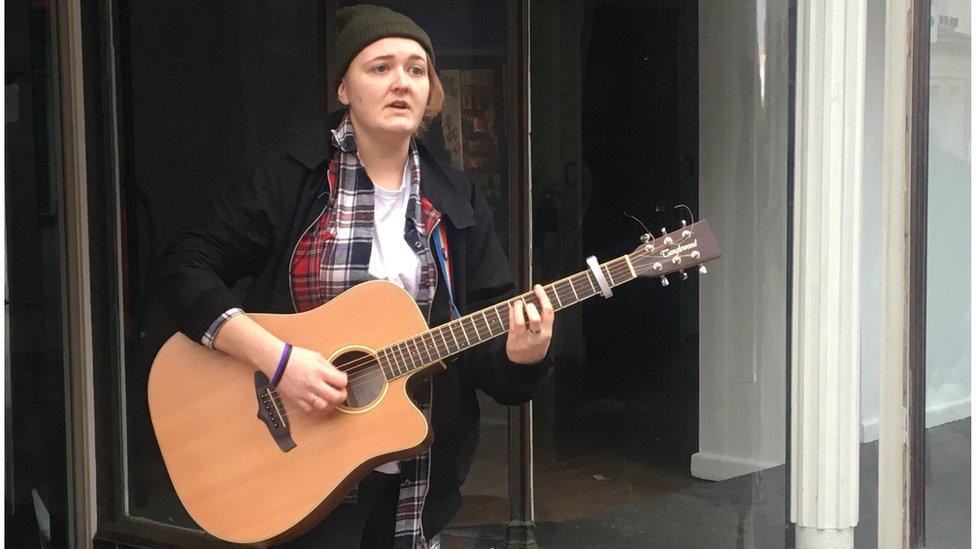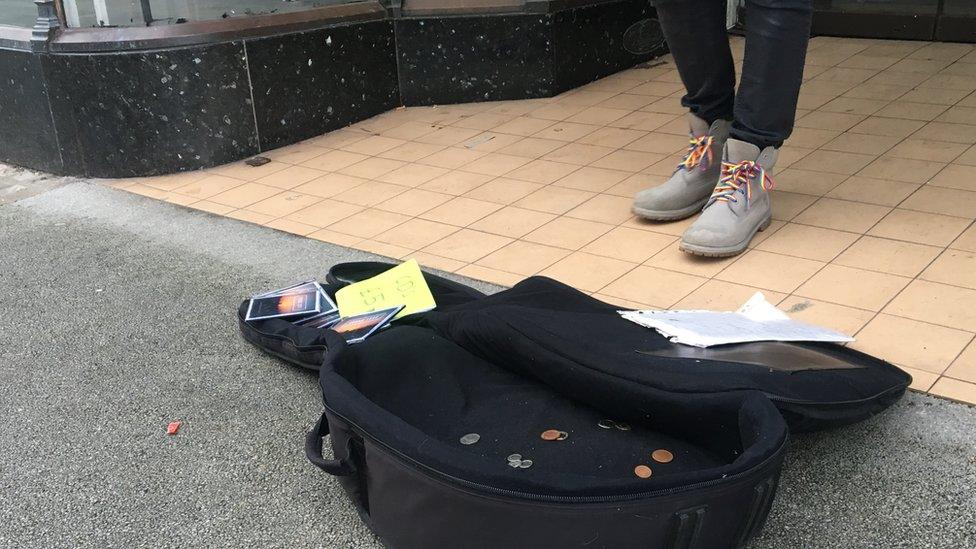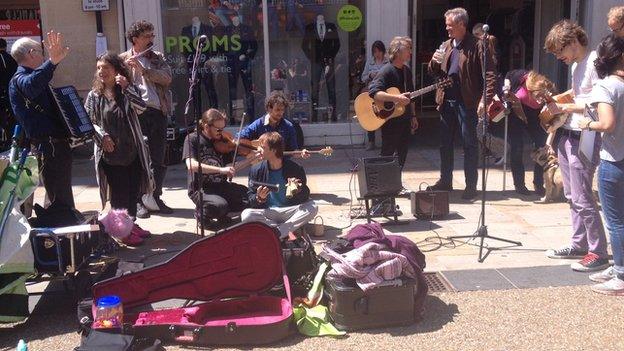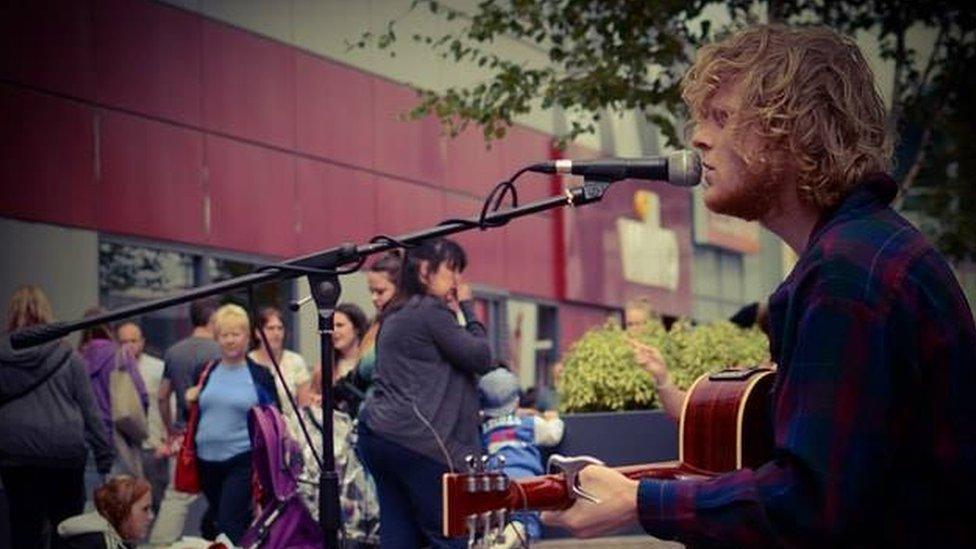'Loud and repetitive' busking tackled in Abergavenny
- Published
- comments
Singer-songwriter Frankie Wesson said a code of conduct was unnecessary
Buskers may have to adhere to a code of conduct in Monmouthshire under plans being considered by the council.
Gwent Police received complaints about musicians in Abergavenny being rude and performing "poor quality", loud and "repetitive" music.
Some buskers said the code was unnecessary as most use "common sense" and never misbehave.
Monmouthshire council said it was simply a "guide" which hopefully would not lead to enforcement action.
Police received a higher than normal number of complaints, external last summer, according to a report before Monmouthshire's licensing and regulatory committee.
Shop owners complained about "poor quality music", repetitive sets, the length of some performances and buskers' proximity to shop fronts.

One charity shop said volunteer staff refused to work certain days because buskers outside were "causing such a nuisance it was unbearable".
In response, a partnership between the council, shop owners and Gwent Police drew up a code, which they said buskers who were consulted agreed to.
However, Frankie Wesson, 24, who has been busking in the town since she was in school, said it was "mostly common sense", adding: "I don't know if it's necessarily needed.
"It's a great live music town and it's great that we have so many buskers who feel comfortable to come here.
"I've never come across anyone who ever caused any kind of problems."

Busking dos and don'ts
No "sound-clash competitions" with other buskers
No busking in one spot for more than an hour
No offensive language or singing while drunk
Be polite and approachable
Keep music to a level "just above background noise"
Do not repeat songs
Do not block doorways or shop entrances

Ms Wesson, a professional musician, said some proposals needed fleshing out: "There's only a certain amount of songs one person can play so you're going to have to repeat yourself."
Buskers do not need licences to perform in most public spaces but codes of conduct have been introduced in cities including London and Oxford.
However, some attracted criticism from musicians and civil liberty groups for being needless, too prescriptive and for potentially criminalising buskers who breach them.

Monmouthshire council licensing officer, Leigh Beach, said it was hoped the code would simply act as "more of a guide to buskers" rather than a means of enforcement.
"Hopefully, if people comply with the guidance it will run smoothly," he added.
"If we do get concerns, we have asked the local premises if they don't mind just going out and having a chat to the busker, perhaps asking if they would just move up the street a little bit or turning it down slightly, and that might solve everything before the police need to be contacted."
A draft code will need to be approved by the council's licensing and regulatory committee on Tuesday before it can potentially come into force.
The authority's head of public protection David Jones said the council hoped "talented performers continue to perform in our thriving town centres".
- Published22 May 2015

- Published29 November 2017

- Published23 November 2017
